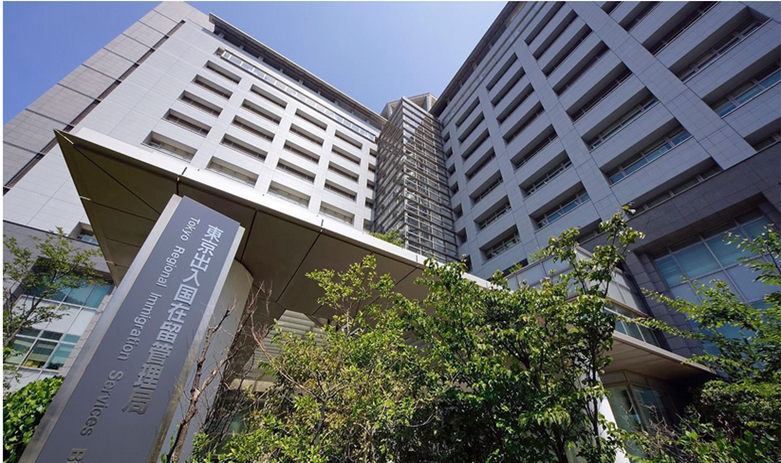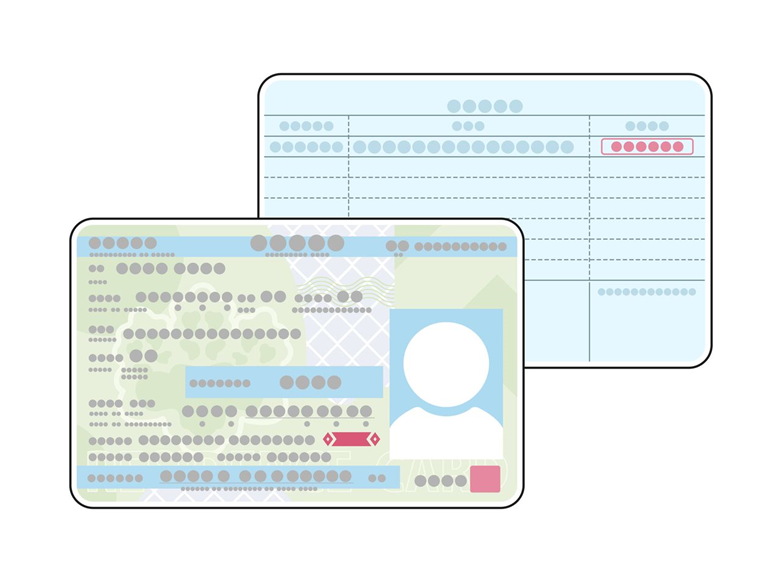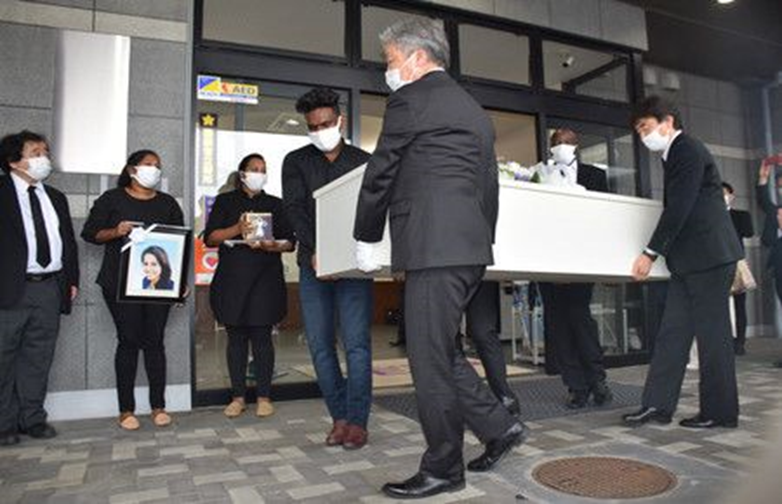!Japan's immigration system hangs in the balance... Bureaucratic orders and mass detention endanger the rights of foreigners

Amid mounting criticism of its treatment of asylum seekers and other illegal immigrants, the Japanese government withdrew an immigration bill from Parliament in 2021, but passed very similar legislation in June 2023. Reform advocate Kinoshita Yoichi draws on his 18 years of experience year at the Japan Immigration Services Agency to highlight fundamental flaws in the system, focusing on the lack of oversight and accountability.
Kinoshita Yuichi
Chairman of the Forum for Future Migration Governance. Administrative observer. Born in Kanagawa Prefecture. After graduating from university, he joined the General Security Intelligence Agency in April 1989 (second-class government employee). He moved to the Immigration Administration Bureau (now the Immigration and Residence Administration Agency) in 2001. Since then, for 18 years until his retirement in March 2019, he worked on tasks such as examining residence applications, examining applications for entry into Japan, and adjudicating Irregularities in regional (sub) offices such as the Tokyo office, Yokohama office, and Haneda office. In April 2017 while he was an employee, he joined the graduate department of Kanagawa University School of Law, due to doubts about the immigration department. He holds a Master's degree in Law for his research on administrative discretion in the immigration management system. In March 2019, he took early retirement while completing his graduate studies at the university at the age of 54, and founded the “Center for Support for Immigration Problems” (name changed in September 2020).
The death in March 2021 of a Sri Lankan woman named Wishima Sandamali in an immigration facility in Nagoya Prefecture in central Japan, who was being detained because her stay in Japan had overstayed her visa, brought Japan's immigration control system under intense scrutiny and forced the government to withdraw legislation that It aims to facilitate the deportation of asylum seekers. But the revised Immigration Control and Refugee Recognition Act finally passed by parliament in June 2023 failed to address fundamental problems, according to Kinoshita Yuichi, a former immigration official and author of a new book on Japan's immigration system and its abuses.
Outdated rules
Kinoshita explains that Japan's current system of immigration control has its roots in the Immigration Control Law passed in 1951 under the authority of the Allied Occupation Forces. When creating this statute, immigration was not the main issue, but rather the focus was on repatriating Korean immigrants, including those who lost their Japanese citizenship as a result of Korean independence, known as “zainichi.”

Regarding the period following the establishment of the post-war immigration control system, Kinoshita says that the situation has completely changed in the 70 years. However, he stresses that the basic framework that was designed with Zainichi Koreans in mind has not changed much, even after the recent revision. He also asserts that the current law threatens not only the rights of overstayed individuals and asylum seekers, but also the rights of legal foreign citizens legally residing in Japan.
The main problem, according to Kinoshita, is the expansion of the discretionary powers of immigration authorities. “The discretionary powers of the immigration authorities are very broad,” he says. He stresses that he is not opposed to some discretionary measures, but giving bureaucrats carte blanche is not right. He notes that non-elected officials are free to act with respect to foreign nationals as they see fit, without an effective process for reviewing their decisions.
Put simply, Kinoshita addresses the issue of broad bureaucratic control over immigration decisions, arguing that there must be effective procedures to review those decisions and ensure transparency and fairness in actions taken.
Bureaucracy rules
The Supreme Court's ruling in McLean v. Minister of Justice in 1978 shows how the discretionary powers of the Japanese immigration authorities have been greatly enhanced. In this case, Ronald McLean, a US citizen legally living in Japan, applied to renew his residence permit, but the Immigration Bureau (later reorganized as the Immigration Services Agency) denied the application in part because of McLean's involvement in an anti-war movement. McLean sued to overturn this decision. Ultimately, the Supreme Court ruled that the Constitution's guarantee of civil rights extended to foreign nationals, but the decision on whether to reinstate a residence permit fell within the discretion of the Minister of Justice. This ruling, in Kinoshita's words, put a stamp of approval on the immigration authorities' broad discretionary powers.

He added, “However, the final decision in that period was the responsibility of the Minister of Justice, who was accountable to Parliament and the people, and the Prime Minister could dismiss him in the event of a controversy.” It was a deliberate decision by the Minister of Justice not to renew someone's visa on the basis that that person's political activities were harmful to the national interest. However, in current days, the final decision is no longer in the hands of the Minister of Justice.”
Instead, broad state discretionary powers are exercised by bureaucrats at the Immigration Services Agency, specifically the directors-general of Japan's eight regional Immigration Services offices. Kinoshita describes this situation as “scary.”
Kinoshita points out that during the revision of the Immigration Control Law in 2001, the powers of the Minister of Justice were largely transferred to directors of regional immigration offices. “There was no public discussion about transferring power from a government minister to these bureaucrats,” he says.
As a result, the final decision lies entirely with the Regional Director-General who has jurisdiction in most immigration cases. As a result, the decision tends to reflect the personal beliefs and inclinations of that official. “It often happens that two regional offices issue completely different decisions to people in almost the same situation,” he says.

Adding to the challenges, the system makes it impossible for foreign nationals, with the exception of asylum seekers, to file an objection or request a review of the Regional Office’s decision in accordance with the Administrative Appeals Act. If they wish to appeal a decision, their only option is to file a lawsuit. This means that the chances of success in such claims are slim, as was previously demonstrated by the ruling in McLean v Secretary of State for Justice.
“I'm not against a strict screening process,” Kinoshita says. “But under this system, there is a serious danger of discretion being exercised arbitrarily. A decision that could turn a person's life upside down could depend on the personal views or ideological biases of an immigration official. “How can we allow such a situation to continue?”
Victims of the pre-Olympic crackdown
During the period between 2004 and 2008, the Japanese government adopted a plan to reduce the number of illegal immigrants in the country by half. The Department of Justice declared the program a huge success, thanks to tightened immigration screening procedures, intensified inspections, and accelerated deportations. Although the technical aspects of excelling in the program have caused the success, another major factor has been part of this success, which has been the large number of overstayers or asylum seekers who have been granted “special permission” (zaitoku) to remain in Japan at the discretion of Regional Directors-General or the Minister of Justice.
With the end of this program, it became difficult to obtain special permission, resulting in an increasing number of unauthorized foreign individuals in detention centers under difficult conditions. The problem became more severe starting in 2016, as immigration authorities imposed stricter restrictions on overstaying individuals, restricting them to detention as part of a “law and order” campaign implemented ahead of the Tokyo Olympics. Detainees have increasingly resorted to hunger strikes to protest harsh conditions or to demand temporary release.

In 2019, Gerald “Sunny” Okafor, a Nigerian national, died while on a hunger strike at the Omura Immigration Detention Center in Nagasaki Prefecture. Okafor spent three years and seven months in detention, making four unsuccessful requests for provisional release. His death received widespread media attention within Japan and internationally, highlighting the “black box” problems of Japan’s immigration system. This incident increased pressure for substantive changes to the Immigration Control Act. However, Kinoshita and other critics complain that the June 2023 revisions did not address the system's core issues and may even complicate matters further.
Mass detention
“The Nagasaki Detention Center is the old deportation center where Korean nationals were held [after World War II] before being repatriated at Japanese government expense,” Kinoshita points out. He explains that the system of “blanket detention” for all persons subject to deportation has not fundamentally changed since the days of the Immigration Control Act of 1951, when there was no expectation of an increase in the number of deportation evaders or any seriousness in accepting refugees (Japan ratified the Convention relating to the Status of Refugees in 1981). .
Currently, most foreign nationals against whom deportation orders have been issued apply to leave the country voluntarily and at their own expense. According to immigration law, all others must be deported in a timely manner and at the government's expense. Kinoshita says it makes no sense to classify individuals who fail to apply for voluntary return to their home country as “people evading deportation” and detain them for an indefinite period. “This is a high cost for the tour, raises international criticism, and harms national interests.”
One of the points of contention with this legal amendment is the introduction of “supervisory measures”. This is a procedure in which overstayers are not housed, but rather live under the supervision of a “supervisor” who is assumed to be a lawyer, relative or supporter. There is also the issue of whether there is someone who can act as a supervisor, but “ultimately, it is the immigration authorities who decide whether or not to subject a person to supervision measures, and the decision whether or not to detain them remains solely at their discretion.”

Expanded discretion
In 2006, the Ministry of Justice issued guidelines for granting overstayers and other unauthorized immigrants special permission to remain in the country, taking factors such as family and marital ties with Japanese citizens into account. But these were just considerations, not strict criteria. In the end, regional general managers can still do what they choose.
Kinoshita says the amended law is a step in the right direction by codifying those considerations, although the criteria for evaluating them are still unclear. At the same time, it raises new concerns by adding a very vague consideration, namely that “internal or external circumstances and their impact on illegal residents of Japan, and other factors must be taken into account.”
Kinoshita expresses concern about the ambiguous expression provided by the new law, which allows authorities to give a written explanation when a person is denied special permission. It suggests that this ambiguous expression may not sufficiently promote transparency, as it lacks clear requirements regarding the content of interpretation and privacy rights.
In light of this, Kinoshita wonders whether the aim of this expression was to further strengthen the power of immigration officials. He expresses his concern about this matter and considers it one of the points of concern in the new law. The obligation to provide reasons for not recognizing special status is considered “progress,” but notes that if the reasons given are vague and lack specificity, they will not lead to transparent decisions.

Activate the appeal system
Although much of the debate over Japan's immigration system focuses on the plight of asylum seekers, overstayers, and other unauthorized immigrants, Kinoshita warns that Japan's current immigration system poses risks to the rights of legal residents as well. He points out that there is always the possibility that an application for renewal of residence will be rejected, as in the McLean case, which represents a challenge to the rights of legal residents. He stresses that the amended law requires unauthorized immigrants to be notified of negative decisions, but there is no similar requirement for legal residents to be notified.
This shows that there is unequal treatment between unauthorized immigrants and legal residents, reflecting the challenges of the current system and the need to think about improving the rights and guarantees of all individuals affected by the immigration system.
Kinoshita stresses the need to amend the system to provide a way for foreign nationals in Japan, regardless of their status, to appeal inappropriate decisions. He also points out that the refugee status recognition process at least allows for external review of decisions, but notes the absence of a similar mechanism for applications in other cases. Kinoshita suggests creating an external body to conduct objective examinations of immigration decisions and review administrative appeals as an option that could enhance transparency and fairness in the system.
Kinoshita spoke of the importance of revamping Japan's immigration system, not to demand more flexible immigration standards, but to promote fairness, transparency and due process. It notes that foreign nationals have long been excluded from the protection of the law with regard to administrative proceedings and administrative appeals, and expresses its regret that the changes requested have not been achieved during the recent revision of Japan's immigration law.

Despite this, he expresses his optimism and stresses that Japan's immigration system is subject to unprecedented scrutiny. He hopes that this scrutiny will ultimately lead to positive changes, and encourages the continuation of talks in a constructive and neutral spirit, while monitoring the authorities' implementation of the amendments to the Immigration Control Law. He says “We must closely monitor the implementation of the revised Immigration Control Law and move forward with constructive and balanced discussions.”
Source: websites

